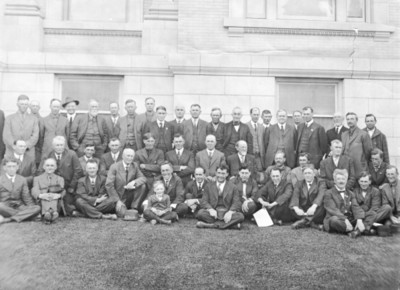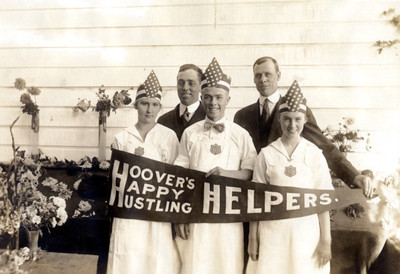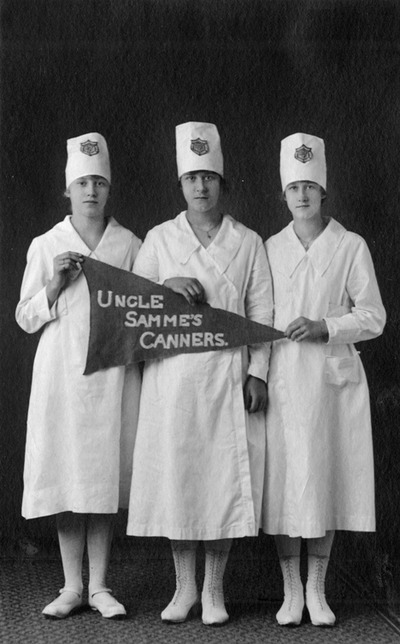The first big test of the Extension Services came during WWI when the newly established staff of extension agents stepped up to help meet the nation’s needs at home. As in any time of war the production of food became a central issue; however, in a war of unprecedented scale, with troops on both sides trapped in trenches, at the start of 1917 WWI appeared to be a war of attrition in which food was very likely to become one of the deciding factors in the war’s outcome. Dedicating every able-bodied man to arms and the manufacture of munitions, Hoover believed, “brought the whole allied world face to face with a shortage of breadstuffs.”
Extension agents were key actors on the home front during the war by rapidly emerging as a new authority on farm technology and food preservation techniques, such as canning and drying. They launched successful education campaigns during the war resulting in preserving, and increasing, American food production during the war years. On the national level, wheat acreage was increased significantly thanks to the efforts of extension services, growing from an average of 47 million acres annually in 1913 to 74 million by 1919. The economic value of Extension programs was evidenced by their reported findings that wheat acreage increased 50 percent in county agent counties as opposed to only 33 percent increases in non-agent counties.
Read More About the Victory Gardens in ScholarsArchive@OSU
Statements by agricultural authorities and statistics regarding the food shortage of the world, 1917
The Home Vegetable Garden, 1918



